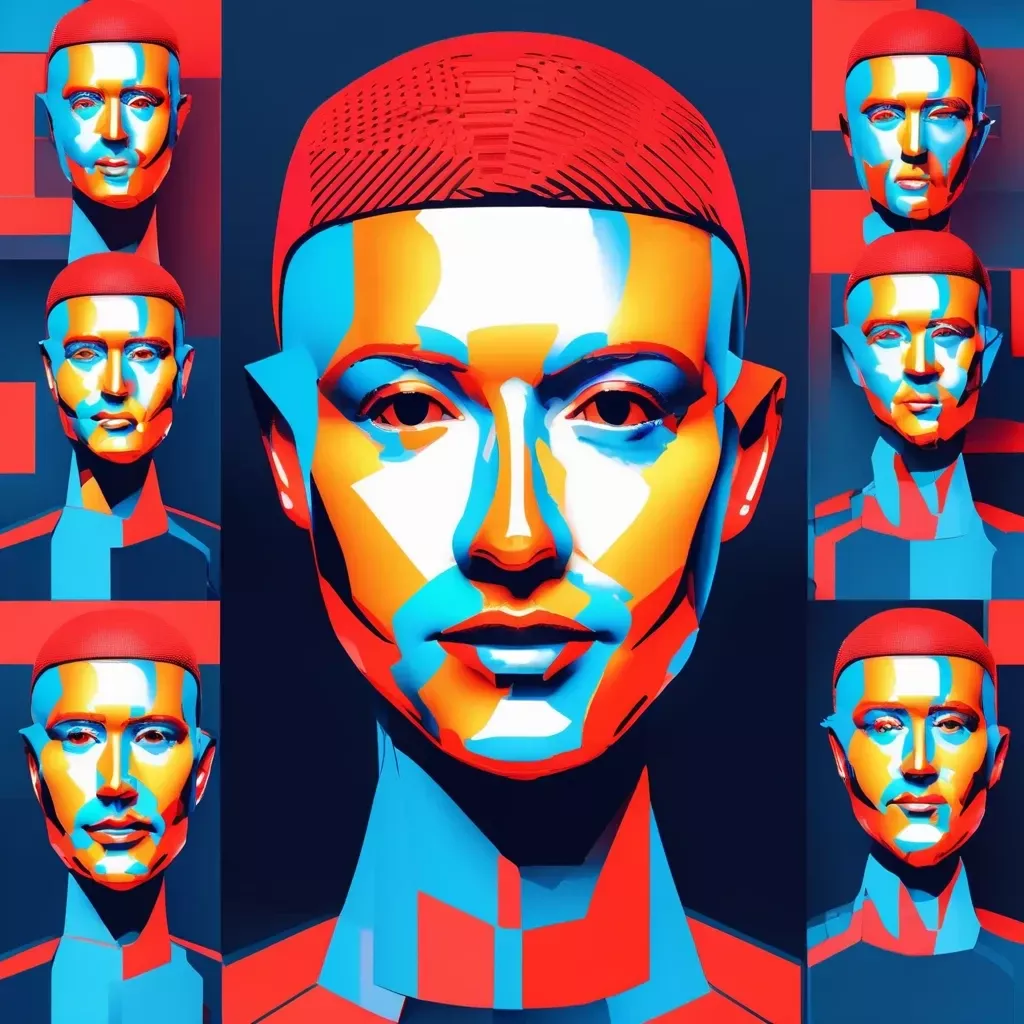Tens of thousands of customers and partners, including adidas, ADP, Aha!, Amazon.com, Bridgewater Associates, Choice Hotels, Clariant, Delta Air Lines, Dentsu, FOX Corporation, GoDaddy, Hugging Face, Infor, Intuit, Kone, KT Corporation, LexisNexis Legal & Professional, Lonely Planet, Netsmart, New York Stock Exchange, Pearson, Pfizer, PGA TOUR, Perplexity AI, Ricoh USA, Rocket Mortgage, Ryanair, Salesforce, Siemens, Thomson Reuters, Toyota, Tui, United Airlines, and others are using Amazon Bedrock to build and deploy generative AI applications.
SEATTLE—April 23, 2024 – Amazon Web Services, Inc. (AWS), an Amazon.com, Inc. company (NASDAQ: AMZN), today announced new Amazon Bedrock innovations that offer customers the easiest, fastest, and most secure way to develop advanced generative artificial intelligence (AI) applications and experiences. Tens of thousands of customers have already selected Amazon Bedrock as the foundation for their generative AI strategy because it gives them access to the broadest selection of leading foundation models (FMs) from AI21 Labs, Anthropic, Cohere, Meta, Mistral AI, Stability AI, and Amazon, along with the capabilities and enterprise security they need to quickly build and deploy generative AI applications. Amazon Bedrock’s powerful models are offered as a fully managed service so customers do not need to worry about the underlying infrastructure, ensuring their applications operate with seamless deployment, scalability, and continuous optimization. Today’s announcements empower customers to run their own fully managed models on Amazon Bedrock, make it simple to find the best model for their use case, make it easier to apply safeguards to generative AI applications, and provide them even more model choice. To get started with Amazon Bedrock, visit aws.amazon.com/bedrock.
Organizations across all industries, from the world’s fastest growing startups to the most security-conscious enterprises and government institutions, are using Amazon Bedrock to spark innovation, increase productivity, and create new end-user experiences. The New York Stock Exchange (NYSE) is leveraging Amazon Bedrock’s choice of FMs and cutting-edge AI generative capabilities across several use cases, including the processing of thousands of pages of regulations to provide answers in easy-to-understand language. Ryanair, Europe’s largest airline, is using Amazon Bedrock to help its crew to instantly find answers to questions about country-specific regulations or extract summaries from manuals, to keep their passengers moving. Netsmart, a technology provider that specializes in designing, building, and delivering electronic health records (EHRs) for community-based care organizations, is working to enhance the clinical documentation experience for healthcare providers. They aim to reduce the time spent managing the health records of individuals by up to 50% with their generative AI automation tool built on Amazon Bedrock. This will lead Netsmart clients to speed-up patient reimbursement submissions while also improving patient care.
“Amazon Bedrock is experiencing explosive growth, with tens of thousands of organizations of all sizes and across all industries choosing it as the foundation for their generative AI strategy because they can use it to move from experimentation to production more quickly and easily than anywhere else,” said Dr. Swami Sivasubramanian, vice president of AI and Data at AWS. “Customers are excited by Amazon Bedrock because it offers enterprise-grade security and privacy, wide choice of leading foundation models, and the easiest way to build generative AI applications. With today’s announcements, we continue to innovate rapidly for our customers by doubling-down on our commitment to provide them with the most comprehensive set of capabilities and choice of industry-leading models, further democratizing generative AI innovation at scale.”
New Custom Model Import Capability Helps Organizations Bring Their Own Customized Models to Amazon Bedrock, Reducing Operational Overhead And Accelerating Application Development
In addition to having access to the world’s most powerful models on Amazon Bedrock–from AI21 Labs, Amazon, Anthropic, and Cohere, to Meta, Mistral AI, and Stability AI–customers across healthcare, financial services, and other industries are increasingly putting their own data to work by customizing publicly available models for their domain-specific use cases. When organizations want to build these models using their proprietary data, they typically turn to services like Amazon SageMaker, which offers the best-in-class training capabilities to train a model from scratch or perform advanced customization on publicly available models such as Llama, Mistral, and Flan-T5. Since launching 2017, Amazon SageMaker has become the place where the world’s high-performing FMs–including Falcon 180, the largest publicly available model to date–are built and trained. Customers also want to use all of Amazon Bedrock’s advanced, built-in generative AI tools such as Knowledge Bases, Guardrails, Agents, and Model Evaluation, with their customized models, without having to develop all these capabilities themselves.
With Amazon Bedrock Custom Model Import, organizations can now import and access their own custom models as a fully managed application programming interface (API) in Amazon Bedrock, giving them unprecedented choice when building generative AI applications. In just a few clicks, customers can take models that they customized on Amazon SageMaker, or other tools, and easily add them to Amazon Bedrock. Once through an automated validation process, they can seamlessly access their custom model, like any other on Amazon Bedrock, getting all the same benefits that they get today–including seamless scalability and powerful capabilities to safeguard their applications, adhering to responsible AI principles, the ability to expand a model’s knowledge base with retrieval augmented generation (RAG), easily creating agents to complete multi-step tasks, and carrying out fine-tuning to keep teaching and refining models–without needing to manage the underlying infrastructure. With this new capability, AWS makes it easy for organizations to choose a combination of Amazon Bedrock models and their own custom models via the same API. Today, Amazon Bedrock Custom Model Import is available in preview and supports three of the most popular open model architectures, Flan-T5, Llama, and Mistral and with plans for more in the future.
Model Evaluation Helps Customers Assess, Compare, and Select the Best Model for Their Application
With the broadest range of industry-leading models, Amazon Bedrock helps organizations to meet any price, performance, or capability requirements they may have and allows them to run models on their own or in combination with others. However, choosing the best model for a specific use case requires customers to strike a delicate balance between accuracy and performance. Until now, organizations needed to spend countless hours analyzing how every new model can meet their use case, limiting how quickly they could deliver transformative generative AI experiences to their end users. Now generally available, Model Evaluation is the fastest way for organizations to analyze and compare models on Amazon Bedrock, reducing time from weeks to hours spent evaluating models so they can bring new applications and experiences to market faster. Customers can get started quickly by selecting predefined evaluation criteria (e.g., accuracy and robustness) and uploading their own dataset or prompt library, or by selecting from built-in, publicly available resources. For subjective criteria or content requiring nuanced judgment, Amazon Bedrock makes it easy for customers to add humans into the workflow to evaluate model responses based on use-case specific metrics (e.g., relevance, style, and brand voice). Once the setup process is finished, Amazon Bedrock runs evaluations and generates a report so customers can easily understand how the model performed across their key criteria and quickly select the best models for their use cases.
With Guardrails For Amazon Bedrock, Customers Can Use Best In Class Technology To Easily Implement Safeguards To Remove Personal And Sensitive Information, Profanity, Specific Words, As Well As Block Harmful Content
For generative AI to be pervasive across every industry, organizations need to implement it in a safe, trustworthy, and responsible way. Many models use built-in controls to filter undesirable and harmful content, but most customers want to further tailor their generative AI applications so responses remain relevant, align with company policies, and adhere to responsible AI principles. Now generally available, Guardrails for Amazon Bedrock offers industry-leading safety protection on top of the native capabilities of FMs, helping customers block up to 85% of harmful content. Guardrails is the only solution offered by a top cloud provider that allows customers to have built-in and custom safeguards in a single offering, and it works with all large language models (LLMs) in Amazon Bedrock, as well as fine-tuned models. To create a guardrail, customers simply provide a natural-language description defining the denied topics within the context of their application. Customers can also configure thresholds to filter across areas like hate speech, insults, sexualized language, prompt injection, and violence, as well as filters to remove any personal and sensitive information, profanity, or specific blocked words. Guardrails for Amazon Bedrock empowers customers to innovate quickly and safely by providing a consistent user experience and standardizing safety and privacy controls across generative AI applications.
More Model Choice: Introducing Amazon Titan Text Embeddings V2, The General Availability Of Titan Image Generator, And The Latest Models From Cohere And Meta
Exclusive to Amazon Bedrock, Amazon Titan models are created and pre-trained by AWS on large and diverse datasets for a variety of use cases, with built-in support for the responsible use of AI. Today, Amazon Bedrock continues to grow the Amazon Titan family, giving customers even greater choice and flexibility. Amazon Titan Text Embeddings V2, which is optimized for working with RAG use cases, is well suited for a variety of tasks such as information retrieval, question and answer chatbots, and personalized recommendations. To augment FM responses with additional data, many organizations turn to RAG, a popular model-customization technique where the FM connects to a knowledge source that it can reference to augment its responses. However, running these operations can be compute and storage intensive. The new Amazon Titan Text Embeddings V2 model, launching next week, reduces storage and compute costs, all while increasing accuracy. It does so by allowing flexible embeddings to customers, which reduces overall storage up to 4x, significantly reducing operational costs, while retaining 97% of the accuracy for RAG use cases, out-performing other leading models.
Now, generally available, Amazon Titan Image Generator helps customers in industries like advertising, ecommerce, and media and entertainment produce studio-quality images or enhance and edit existing images, at low cost, using natural language prompts. Amazon Titan Image Generator also applies an invisible watermark to all images it creates, helping identify AI-generated images to promote the safe, secure, and transparent development of AI technology and helping reduce the spread of disinformation. The model can also check for the existence of watermark, helping customers confirm whether an image was generated by Amazon Titan Image Generator.
Also available today on Amazon Bedrock are Meta Llama 3 FMs and coming soon are the Command R and Command R+ models from Cohere. Llama 3 is designed for developers, researchers, and businesses to build, experiment, and responsibly scale their generative AI ideas. The Llama 3 models are a collection of pre-trained and instruction fine-tuned LLMs that support a broad range of use cases. They are particularly suited for text summarization and classification, sentiment analysis, language translation, and code generation. Cohere’s Command R, and Command R+ models are state-of-the-art FMs customers can use to build enterprise-grade generative AI applications with advanced RAG capabilities, in 10 languages, to support their global business operations.
What Amazon Bedrock Customers and Partners Are Saying
Built by Amazon, Rufus is a generative AI-powered expert shopping assistant trained on the company’s extensive product catalog, customer reviews, community Q&As, and information from across the web to answer customer questions on a variety of shopping needs and products, provide comparisons, and make recommendations based on conversational context.
“To offer a superior conversational shopping experience to Amazon Stores customers, we worked to develop Rufus into one of the most advanced models ever created by Amazon, and one we knew would benefit our customers far beyond this initial application,” said Trishul Chilimbi, vice president and distinguished scientist, Stores Foundational AI at Amazon. “With Amazon Bedrock Custom Model Import, we are now able to bring Rufus’s advanced underlying model to internal Amazon developers, via Amazon Bedrock, allowing even more builders across our organization to access it as a fully managed API. Now, teams in businesses as diverse as Logistics and Studios are able to build with this model while benefiting from Amazon Bedrock’s streamlined development experience, accelerating the creation of new experiences for all of our customers across Amazon.”
Aha! is a software company that helps more than 1 million people bring their product strategy to life. “Our customers depend on us every day to set goals, collect customer feedback, and create visual roadmaps,” said Dr. Chris Waters, co-founder and chief technology officer at Aha! “That is why we use Amazon Bedrock to power many of our generative AI capabilities. Amazon Bedrock provides responsible AI features, which enable us to have full control over our information through its data protection and privacy policies, and block harmful content through Guardrails for Bedrock. We just built on it to help product managers discover insights by analyzing feedback submitted by their customers. This is just the beginning. We will continue to build on advanced AWS technology to help product development teams everywhere prioritize what to build next with confidence.”
Dentsu is one of the world’s largest providers of integrated marketing and technology. “Over the past three months, we’ve been using the Amazon Titan Image Generator model in preview to generate realistic, studio-quality images in large volumes, using natural language prompts, specifically for product placement and brand aligned image generation,” said James Thomas, global head of technology, Dentsu Creative. “Our creative teams are impressed by Titan Image Generator’s diverse content outputs which have helped generate compelling images for product placement campaigns around the globe. We are looking forward to experimenting with the model’s new watermark detection feature to help increase transparency around our AI-generated content and build even greater trust with our clients.”
Pearson is a leading learning company, serving customers in nearly 200 countries with digital content, assessments, qualifications, and data. “We added Amazon Titan Image Generator to our content management platform because of the quality of the model along with the powerful security and indemnity protection it offers,” said Eliot Pikoulis, chief technology officer, Core Platforms at Pearson. “We’re impressed with Titan Image Generator’s ability to create stunning visuals from simple text descriptions, empowering our diverse team of designers, marketers, and content creators to bring their ideas to life with ease and speed. For us, Titan Image Generator is not just a tool but a catalyst for creativity, which allows us to create compelling course material for our learners in an easy and secure way.”
Salesforce, the #1 AI CRM, empowers companies to connect with their customers through the power of CRM + Data + AI + Trust. “AI is an integral part of our commitment to help our customers deliver personalized experiences across their Salesforce applications grounded in their Data Cloud data. As we integrate generative AI and enable customers to deliver grounded AI on their unified data, we want to evaluate all possible foundation models to ensure the ones we choose are the right fit for our customers’ needs,” said Kaushal Kurapati, senior vice president of AI Products at Salesforce. “Amazon Bedrock is a key part of our open ecosystem approach to models, and this new model evaluation capability has the potential to expedite how we compare and select models, with both automated and human evaluation options. Now, not only will we be able to assess the model on straightforward criteria, but also more qualitative criteria like friendliness, style, and brand relevance. With the enhanced productivity that the capability promises, operationalizing models for our customers will be easier and faster than ever.”
About Amazon Web Services
Since 2006, Amazon Web Services has been the world’s most comprehensive and broadly adopted cloud. AWS has been continually expanding its services to support virtually any workload, and it now has more than 240 fully featured services for compute, storage, databases, networking, analytics, machine learning and artificial intelligence (AI), Internet of Things (IoT), mobile, security, hybrid, media, and application development, deployment, and management from 105 Availability Zones within 33 geographic regions, with announced plans for 18 more Availability Zones and six more AWS Regions in Malaysia, Mexico, New Zealand, the Kingdom of Saudi Arabia, Thailand, and the AWS European Sovereign Cloud. Millions of customers—including the fastest-growing startups, largest enterprises, and leading government agencies—trust AWS to power their infrastructure, become more agile, and lower costs. To learn more about AWS, visit aws.amazon.com.
About Amazon
Amazon is guided by four principles: customer obsession rather than competitor focus, passion for invention, commitment to operational excellence, and long-term thinking. Amazon strives to be Earth’s Most Customer-Centric Company, Earth’s Best Employer, and Earth’s Safest Place to Work. Customer reviews, 1-Click shopping, personalized recommendations, Prime, Fulfillment by Amazon, AWS, Kindle Direct Publishing, Kindle, Career Choice, Fire tablets, Fire TV, Amazon Echo, Alexa, Just Walk Out technology, Amazon Studios, and The Climate Pledge are some of the things pioneered by Amazon. For more information, visit amazon.com/about and follow @AmazonNews.





